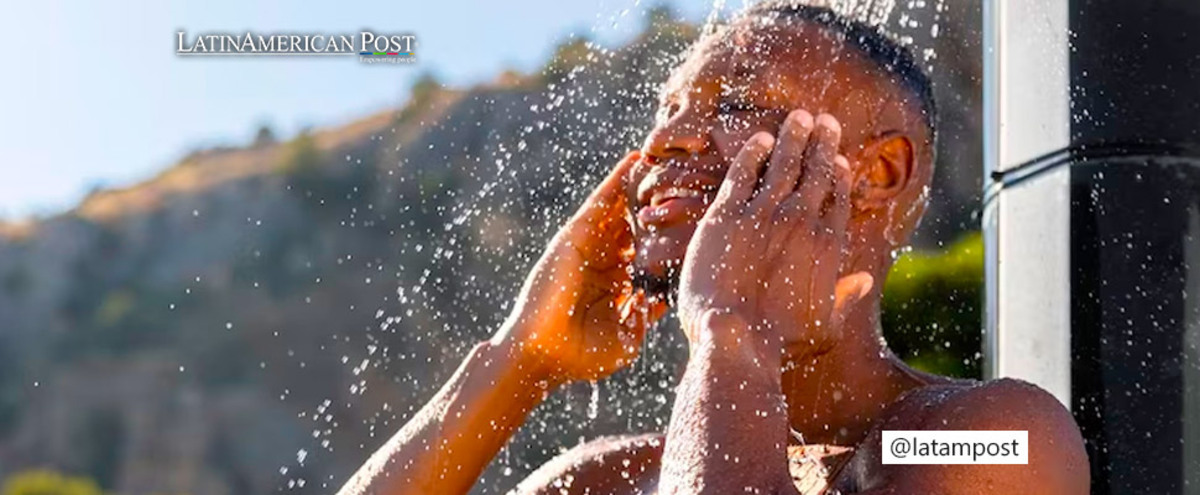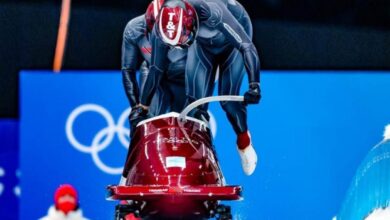Cold Water or Hot Water: Which Brings Greater Post-Workout Benefits?
After performing physical activity, it is not recommended to enter the shower, but to do so after 20 minutes, for the well-being of the athlete. This is why we tell you about the advantages of recovering with hot and cold water.

Photo: Freepik
LatinAmerican Post | Camilo Parra
Escucha este artículo
Leer en español: Agua fría o agua caliente: ¿Cuál trae mayores beneficios post entrenamiento?
Performing any type of physical activity can bring multiple benefits to the human body. In fact, science recommends that all people should include any type of exercise in their lifestyle, because it favors the heart, lungs, and even mental health, as it helps treat depression, anxiety, reduces stress levels, and helps sleep better.
After doing any kind of physical activity, many people wonder if they should take a shower with cold water or hot water. Although scientific studies confirm the benefits of both, it will depend on the goals that athletes have or what is best for the body according to the exercise practiced.
Cold Water
After an intense workout, taking a cold shower can help reduce muscle soreness and help the body recover. In addition, according to a 2019 study published in The Journal of Strength and Conditioning Research, it was shown that it also favors a faster restoration of heart rate.
Normally, high-performance athletes such as soccer players, American football players, among others, usually enter bathtubs full of ice after a demanding competition in order for the muscles to recover faster. It also helps limit inflammation and damage to muscle fibers, as determined by a study conducted by the Journal of Physiology in 2017.
This activity, however, is not suitable for everyone, since entering water with very low temperatures can cause hypothermia due to the initial neurogenic response to cold shock.
Taking a shower with cold water also produces vasoconstriction as a consequence. This consists of the blood vessels contracting, which makes blood circulation difficult at the moment. But when you stop applying cold, an opposite effect is produced called hyperthermia, which produces a greater amount of oxygen, thus reducing fatigue in the central nervous system.
Despite the multiple benefits that cold water delivers to the body after exercise, it is not recommended to submerge the body in low temperatures if your goal is to gain muscle mass and strength. The reason is that it mitigates the activation of key proteins and elite cells that are vital to this process.
You can also read: Roma and Inter: Victims of Cryptocurrency Companies
Hot Water
Taking a hot shower after training also brings some benefits. One of these is the dilation of blood vessels. Consequently, the arrival of more blood to the tissues is stimulated, thus relaxing the muscles, joints, and tendons. Likewise, it will help prevent lactic acid from accumulating, which is a substance generated by the body, which in large quantities can cause muscle fatigue. This could lead the athlete to change their training.
By increasing blood flow, localized recovery can be a point in favor of the hot bath, especially if you are an athlete who performs resistance and/or weight exercises that tend to break muscle fibers.
Releasing tension, stress and opening the pores so that the body eliminates toxins are other benefits that a bath with hot water brings. However, it is important that the temperature is not very high, which can dry out the skin. It also causes the veins to dilate, which increases the risk of suffering some type of muscle pain.
According to experts on the subject, it is advisable to take showers with lukewarm water or alternate the water temperature. That is, start with cold water, then gradually increase the temperature, but without the temperatures being too high or low.





